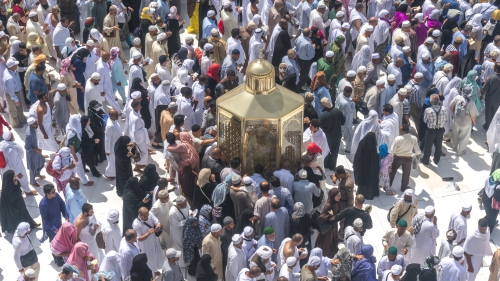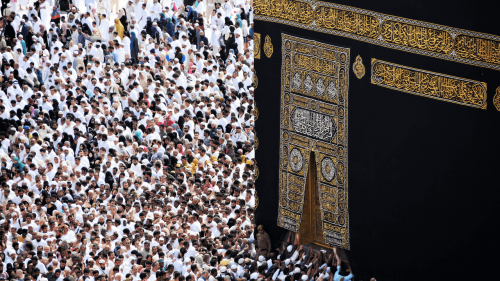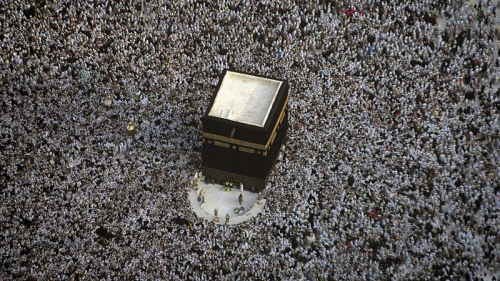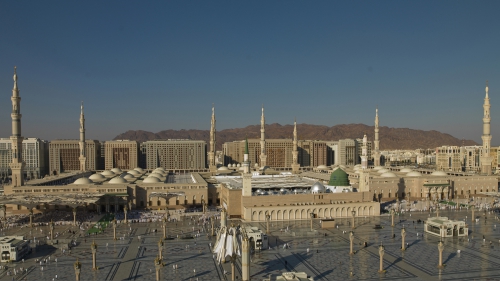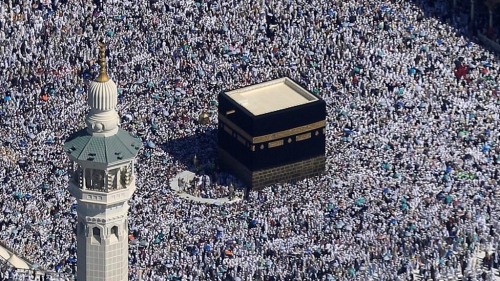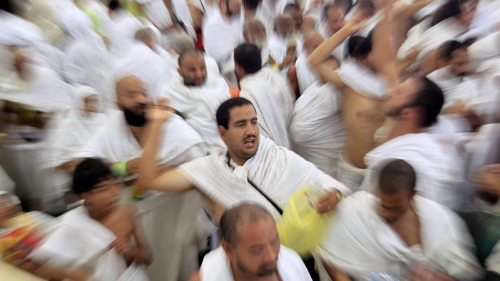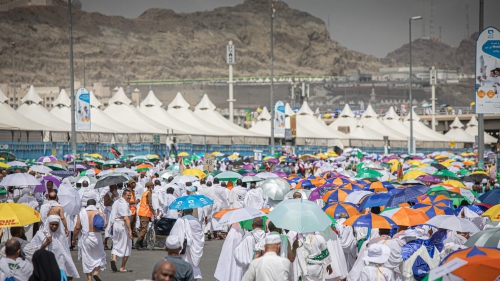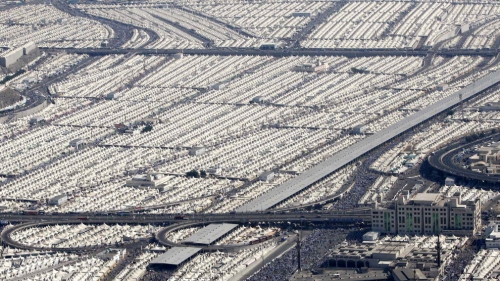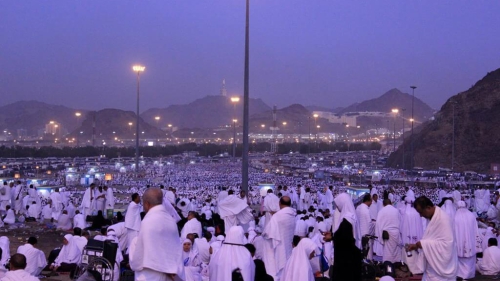Spiritual Hajj in the Time of Pandemic
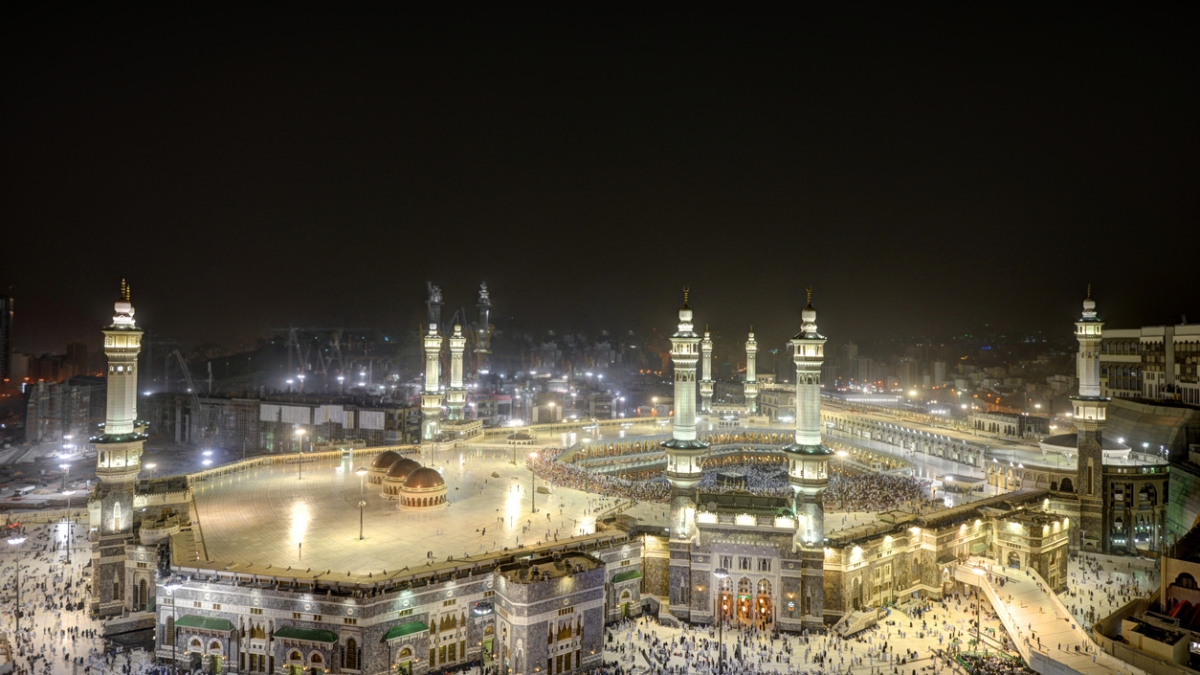
Hajj is off-limits to the majority of Muslims this year (again), the latest form of wide-ranging setback due to the pandemic. It affects around two million Muslims in particular, and all Muslims in general.
It upsets all Muslims in general because “the believers are like one body in their affection, mercy, and compassion for each other. When one of the limbs suffers, the whole body reacts with sleeplessness and fever” (Ṣaḥīḥ al-Bukhārī 5665). In addition, during the hajj season, 2.5 million pilgrims do pray not only for them but for all their brothers and sisters across the globe. The acceptance of that supplication is highly expected mainly due to the two reasons: (1) it is the prayer of pilgrims and (2) the Prophet (ﷺ) says, “The supplication of a Muslim for his brother in his absence will certainly be answered. Every time he makes a supplication for good for his brother, the angel appointed for this particular task says: ‘āmīn, may it be for you too’.” (Ṣaḥīḥ Muslim: 2732).
Since physically many can’t undertake a journey to the holiest city this year, it compels us to think of a spiritual trip to Makkah only to try our best to reap the benefits of hajj, as part of seeing opportunities in tribulations and attempting possibly finest replacements. For that, let’s do a ‘hajj’ through the implications of the hajj, navigating its maqāṣid (higher objectives of Sharīʿah in enjoining the hajj) and spiritually circling around the Kaʿbah.
Every human is composed of heart and brain, faith and emotion, obedience and adoration, and love and empathy. Each of them needs due and individual care. Relation with Allah is built neither on definite code of law nor on fear of punishment but it is solidified with deep love, affection, hope, and mindfulness (Abū al-Ḥasan al-Nadwī, wa Adhdhin fī al-Nās bi al-Ḥajj, 9-10). The Quran says, “Those who believe are stauncher in their love for Allah” (al-Baqarah: 165). About Ibrahim, Allah says, “Truly, Abraham was forbearing, tender-hearted, and ever turning to his Lord” (Hud: 75). The Prophet (ﷺ) says, “Whoever has three traits within himself will find the sweetness of faith (ḥalāwat al-īmān): one who loves Allah and His Messenger more than anything else, one who loves a servant only for the sake of Allah, and one who hates to turn back to unbelief after Allah has saved him, just as he hates to be thrown into the fire” (Ṣaḥīḥ al-Bukhārī 16).
Out of this love, devotees yearn to accomplish whatever pleases their Lord and to elevate themselves from one station to the higher. Seeking the myriad blessings showered in the holiest places particularly during the hajj season, they set out to become the drops in the ocean of the dedicated pilgrims.
The supreme wish of every believer, the ineffable transcendent quest, is to meet the Lord (liqā’ Allah), with Him they passionately communicate on daily basis and for Him, they step back from several lusts. Part of this thirst is quenched via the daily prayers, fasting, charities, recitations, etc., whereas the hajj embodies the epitome of the spiritual serenity in this regard (al-Dahlawī, Ḥujjat Allābi al-Bālighah, 1: 59).
Dhu al-Hijjah is spring of love, yearning, and salvation in which pilgrims become as they were born anew and a petal from their life falls down whereas a new petal of pure life sprouts with ultimate spiritual bliss. In this season, ʿishq between Khāliq and khalq (the Creator and creatures) transcends, and ḥubb between them permeates, which is a sheer feeling that fails any words to describe. ‘The guests of most Merciful’ (ḍuyūf al-Raḥmān) is a highly revered title conferred on every pilgrim. That is a moment where the Creator comes down to host His creatures and the feast is of His immense mercy.
Being with this sincere emotion, pilgrims loudly pronounce 'labbayk', by then their names are stamped in the guest-list, and they enter a new abode and melt in longing for Allah. Labbayk is their slogan, which asserts the “oneness of Allah” in praise, blessings, and authority. Apart from the emotions embedded therein, it can slightly be translated as “I respond to Your call O Allah, I respond to Your call, and I am obedient to Your orders, You have no partner, I respond to Your call. All the praises and blessings are for You, All the sovereignty is for You, And You have no partners with you.”
Retaining this love in heart and slogan in lips, hājī enters Masjid al-Ḥaram but still Rabb al-bayt (the Lord of the Kaʿbah) remains unseen, at that point he/she portrays the vigor of belief in the ‘Unseen’ (al-ghayb), which is a crucial part of faith in Islam. Allah introduces the believers, “who believe in the unseen, establish prayer, and donate from what We have provided for them” (al-Baqarah: 3). Therefore, hajj is an exemplification of absolute submission, thorough observance of divine injunctions, striving towards soulful excellence, answering to the heavenly call (Abū Ḥāmid al-Ghazālī, Iḥyā’ ʿUlūm al-Dīn, 1: 240).
Allah emphasized on acquiring two provisions as the sustenance for the journey of hajj, they are taqwah (piety, fear of God) and dhikr (remembrance of Allah). These two provisions are highlighted in the Quranic verses related to hajj. For example, Allah says about taqwah, “Take necessary provisions for the journey, surely the best provision is taqwah. And be people of taqwah, O people of reason! (al-Baqarah 197). “Whoever honors the symbols of Allah, it is certainly out of the taqwah of the heart” (al-Hajj: 32).
About the importance of dhikr in hajj, the Quran says, “When you return from ʿArafah, do dhikr of Allah near the sacred place and do dhikr of Him for having guided you” (al-Baqarah: 198). “And when ye have completed your devotions, then remember Allah as you remember your fathers or with a more lively remembrance” (al-Baqarah: 200).
Here, pilgrims need to do self-introspection about the awareness regarding the uninterrupted surveillance of Allah on their faith and action. Likewise, they may increase the time they are spending for the remembrance of Allah with their tongue and heart.
Hajj is the remembrance of Allah, affirmation of tawḥīd, reinforcement of the faith, seeking the Lord, seeing His symbols, adhering to His injunctions, staying away from His prohibitions, getting profoundly purified, coming closer to Him, obtaining the salvation, preparing to receive the reward which is nothing but the paradise. For many, it is a junction in the road of life, to move from bad to good or from good to better. Hajj is more about the internal journey than external.
A model of spiritual hajj is described below with seven steps in order.
1. Enrich ourselves with remembrance and mindfulness of Allah – taqwah and dhikr.
2. Sincere supplication for selves and all brothers and sisters – fraternity of believers.
3. Affirmation of tawḥīd – Message of Labbayk.
4. Absolute submission and belief in the Unseen – importance of īmān bi al-ghayb.
5. Cherish the sweetness of faith by loving Allah and His Prophet (ﷺ) more than anything – ḥalāwat al-īmān
6. Yearning to meet the Lord – Liqā’ Allah.
7. Winning forgiveness and paradise – rewards of ḥajj mabrūr.
As many of us are far from Makkah, though it is undoubtedly incomplete, we still can have a ‘spiritual hajj’ by implanting the features of ideal hajj in our life and attempting to get its maximum results and rewards, as finally whatever occurs in this world is to be the land for cultivating the hereafter. Allah knows the best (Wa Allāhu Aʿlam).
Sayyed Mohamed Muhsin is an Assistant Professor at Kulliyah of Islamic Revealed Knowledge and Human Sciences, International Islamic University Malaysia.
Topics: Hajj, Pandemic, Tawhid (Oneness Of God) Values: Spirituality
Views: 3053
Related Suggestions






